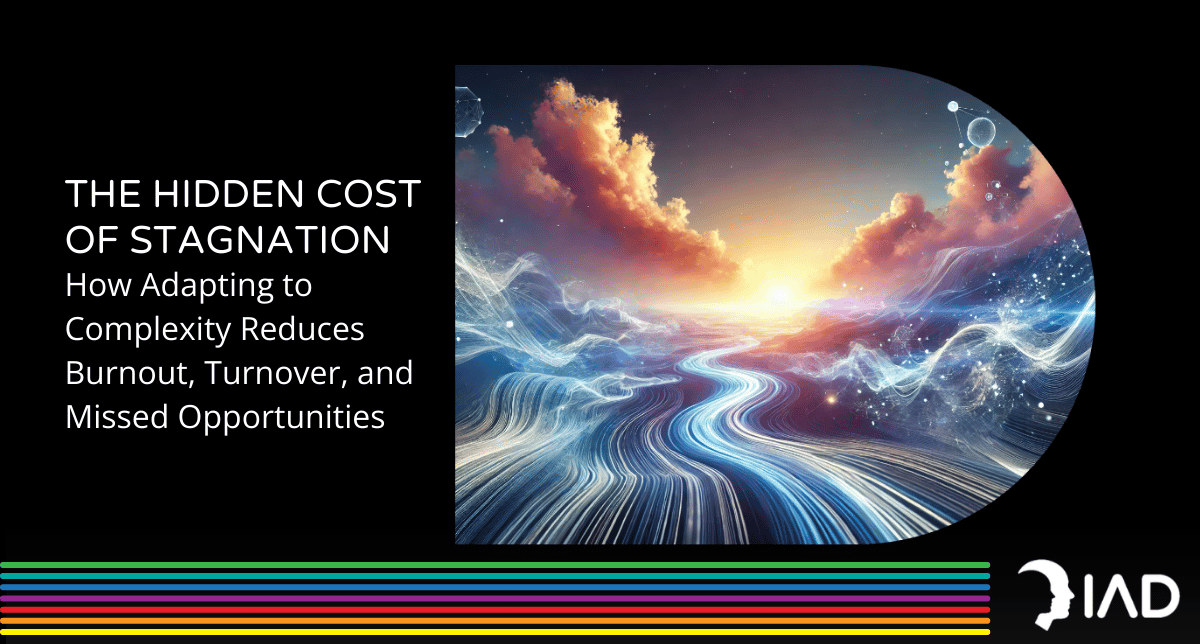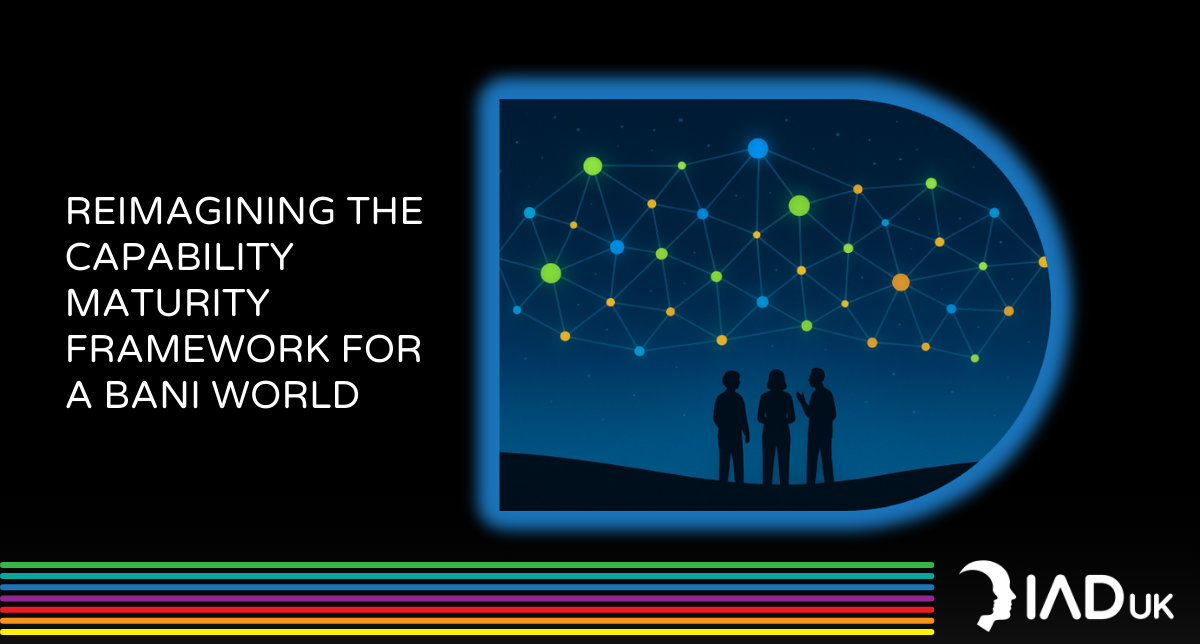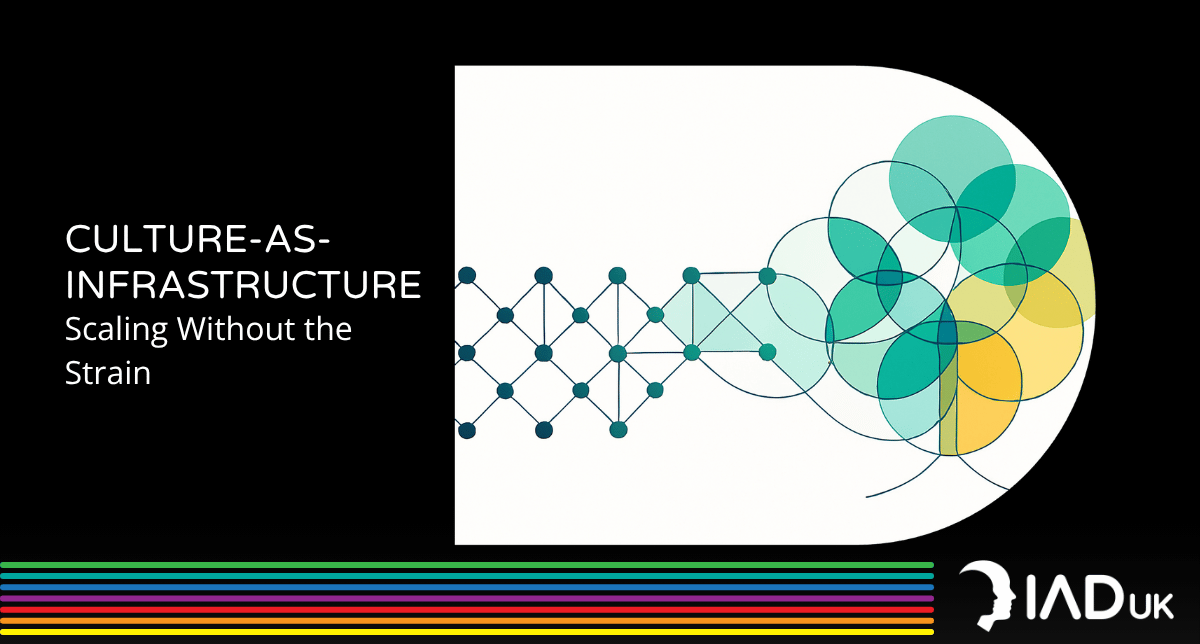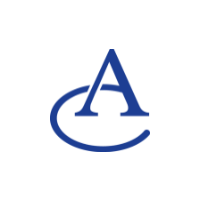The Hidden Cost of Stagnation: Why Dynamic Intelligence is Essential
How Adapting to Complexity Reduces Burnout, Turnover, and Missed Opportunities

Organisations are facing a critical challenge: survival is no longer about maintaining the status quo, but about continuous adaptation. What separates thriving enterprises from those left behind isn't just the ability to learn—it's the capacity to fundamentally transform how we think.
Beneath the surface of seemingly stable operations, a quiet crisis is unfolding. Teams perform adequately, processes run smoothly, but the seeds of stagnation are already taking root. Employees become disengaged, leaders default to habitual decision-making, and opportunities slip away as organisations struggle to pivot quickly enough.
Dynamic Intelligence emerges as a powerful antidote to this organisational inertia. By cultivating cognitive complexity, it enables individuals and teams to not just respond to change, but to anticipate and shape it. This approach goes beyond traditional skill-building. Instead it addresses the most critical question facing modern organisations:
Are we truly prepared to think differently when the unexpected occurs?
The Cost of Staying Still: From Skill Acquisition to Cognitive Transformation
For decades, organisations have relied on traditional training programs that focus on teaching specific competencies—how to execute tasks, follow procedures, or master new tools. This approach assumes that tomorrow's challenges will mirror today's, a dangerous misconception in an era of unprecedented complexity.
The workplace is evolving at an exponential rate. Leaders and teams now face problems that defy traditional solutions, requiring more than a predetermined set of skills. Where once a comprehensive training manual might suffice, organisations now need a more adaptive approach to learning and development.
The limitations of static skill-building become increasingly apparent as the business landscape shifts. Employees find themselves equipped with tools that quickly become obsolete, leading to a cascade of organisational challenges:
- Disengagement grows as roles fail to evolve
- Burnout intensifies when teams rely on outdated problem-solving methods
- Talent becomes restless, seeking growth opportunities elsewhere
- Innovation stagnates as organisations remain trapped in familiar patterns
The fundamental issue isn't about accumulating more knowledge—it's about developing the cognitive flexibility to apply knowledge dynamically, to think beyond existing frameworks, and to navigate uncertainty with intentionality and insight.
Why Dynamic Intelligence is the Key to Adaptation
The traditional Organisational Development model operates as if stability is the default state—a dangerous misconception in today's rapidly shifting landscape. Dynamic Intelligence offers a radical alternative: a framework that prepares individuals and teams to navigate uncertainty with intention and agility.
Think of organisational adaptability like navigating a river. Traditional training provides a static map of current conditions—useful only when nothing changes. Dynamic Intelligence is about teaching people to read the river itself: to interpret shifting currents, anticipate obstacles, and chart a course through unpredictable waters.
At its core, Dynamic Intelligence focuses on four key elements: Intention, Awareness, Choice, and Response. Together, these principles guide individuals to:
- Make decisions based on a clear understanding of the situation rather than defaulting to old habits.
- Recognise biases and blind spots that can hinder effective problem-solving.
- Adapt their approach to fit the context, whether it’s a strategic pivot, an interpersonal challenge, or a crisis.
This isn't about predicting the future—it's about building the cognitive capacity to engage with it effectively. Where traditional training creates rigid skill sets, Dynamic Intelligence develops adaptive thinking mechanisms that transform complexity from a threat into an opportunity.
Fostering Dynamic Intelligence
Transforming organisational learning requires more than understanding—it demands strategic implementation. Three key strategies can help organisations move from static skill acquisition to dynamic cognitive development:
1. Shift from Horizontal to Vertical Development
Traditional training focuses on horizontal development—adding more skills and knowledge. While valuable, it doesn’t address how employees think in complex situations. Vertical development enhances cognitive complexity, enabling individuals to approach problems with greater adaptability and intentionality.
Evaluate your existing training programs to identify gaps where vertical development principles could be integrated. Ask questions like: “What biases in thinking might get in the way of applying this learning?”
By focusing on how people think, rather than just what they know, organisations can prepare employees to use what they know to navigate uncertainty and make better decisions under pressure.
2. Create a Feed-Forward Culture of Continuous Growth
Many feedback systems focus on reviewing past actions, often unintentionally reinforcing outdated habits. A feed-forward approach shifts the emphasis to future possibilities and proactive improvement. This mentality aligns with Dynamic Intelligence by fostering a culture of exploration and intentional action.
Replace traditional feedback sessions with forward-looking conversations. For example, instead of asking, “What went wrong?” ask, “What could we try differently next time?” Encourage managers to guide their teams in anticipating future challenges and experimenting with new approaches.
Feed-forward thinking reduces fear of failure, builds confidence, and helps employees reframe challenges as opportunities for growth.
3. Align Development with Organisational Complexity
Dynamic Intelligence thrives when aligned with the unique challenges of your organisation. L&D programs must reflect the complexity employees face, from strategic pivots to interpersonal dynamics.
Conduct regular assessments of organisational challenges and recalibrate your development initiatives to address emerging needs. Cognitive assessments - of roles and role-holders - can help identify specific areas where individuals or teams need specific development.
Misaligned development goals can lead to stagnation, while tailored initiatives ensure that employees are equipped to meet real-world challenges head-on.
By tailoring development strategies to your unique organisational landscape, you transform learning from a generic exercise into a strategic capability. The Exponential Value of Adaptation
The costs of stagnation are often invisible but profound. Organisations that fail to develop cognitive flexibility find themselves:
- Struggling to retain top talent
- Missing critical market opportunities
- Falling behind more adaptive competitors
Conversely, investing in Dynamic Intelligence yields exponential returns:
- Enhanced employee engagement
- More resilient leadership
- Faster, more nuanced decision-making
- A culture of continuous innovation
In an era where change is the only constant, organisations can no longer afford traditional, static approaches to development. Dynamic Intelligence represents more than a framework—it's a fundamental reimagining of how we prepare individuals and teams to thrive in complexity.
2025 demands more than incremental improvements. It requires a bold commitment to developing cognitive capabilities that transform challenges into opportunities.
Are you ready to move beyond stagnation and embrace adaptive intelligence?
Schedule a consultation to assess your organisation's readiness for transformation.
Download our comprehensive guide to Dynamic Intelligence.
Schedule a consultation to assess your organisation's readiness for transformation.
Alternatively, why not download our comprehensive brochure




